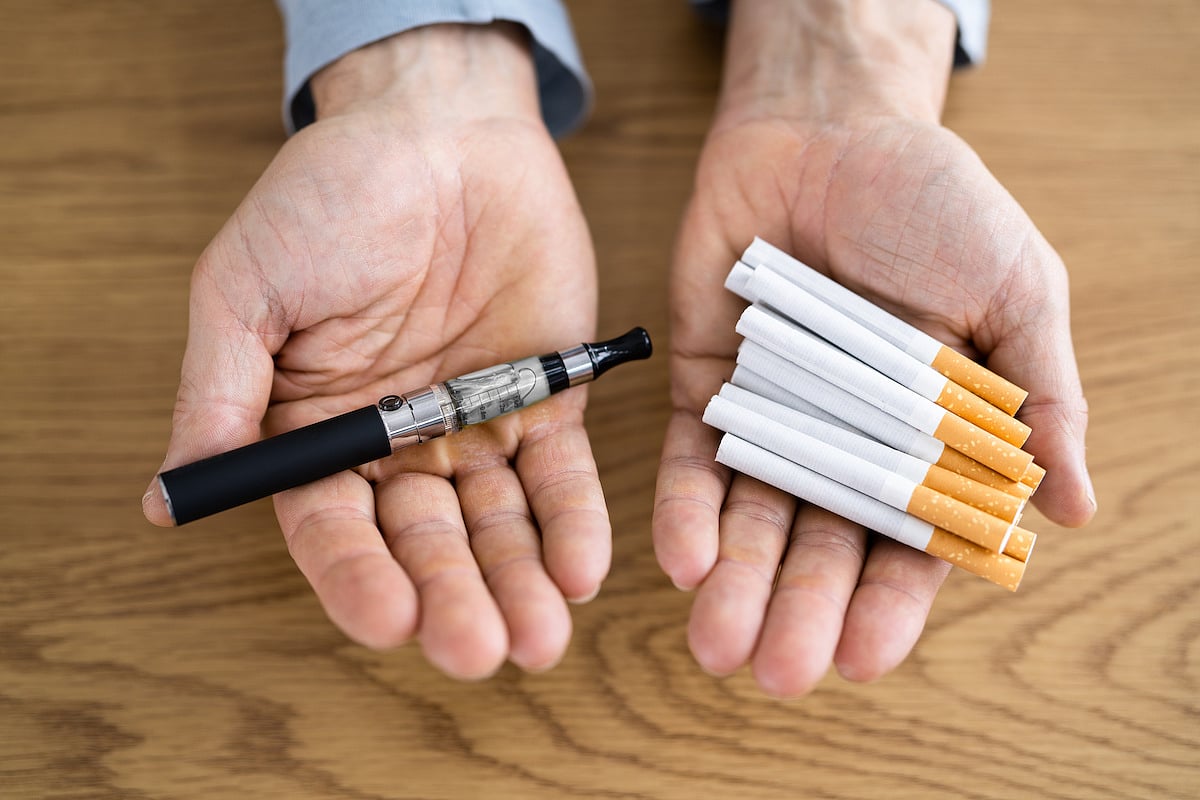Get Healthy!

- Posted August 2, 2024
Smoking & Vaping Together Raise Lung Cancer Risks Even Higher
Experts have long suspected it, but a new study confirms that folks who vape and smoke tobacco face higher risks for lung cancer than if they'd done either alone.
“From a public health perspective, we have always been concerned about dual-use of both traditional and e-cig products," said study lead author Marisa Bittoni, an oncology researcher at Ohio State University in Columbus.
"This study presents clear evidence showing that vaping in addition to smoking can increase your risk for lung cancer," said Bittoni, who works at the university's Arthur G. James Cancer Hospital and Richard J. Solove Research Institute.
Her team tracked rates of both vaping and smoking among nearly 5,000 Columbus-area people diagnosed with lung cancer, and compared them to a group of almost 27,300 people without cancer.
The results: Folks who had both smoked and vaped were eight times more likely to be in the lung cancer group than the group that was cancer-free.
Moreover, people who both vaped and smoked were four times more likely to go on to develop lung cancer compared to people who had only smoked, Bittoni's group found.
The findings were published recently in the Journal of Oncology Research and Therapy.
“Our findings provide the first evidence that smoking in combination with vaping significantly increases the risk of lung cancer compared to smoking alone," said study co-author Dr. Randall Harris, a professor of epidemiology in the university's College of Public Health.
"Most people know that tobacco smoke contains cancer-causing chemicals but, overall, there is less knowledge about the chemicals that are inhaled through vape vapors,” he added.
According to the study authors, prior research has already linked the nicotine in e-cigarette vapor to lung cancers in mice. "The amount of smoke the mice were exposed to was similar to a person who had vaped for about three to six years," they noted.
Also, "it is clear from the scientific literature that a variety of toxic compounds besides nicotine are present in aerosolized e-liquid," the researchers added.
Still, many people, including teens and young adults drawn to vaping, may not realize that, Bittoni said.
High rates of vaping are "especially concerning given the rate of youth and young adults using these products,” she said in a university news release. “More research about the health effects of alternative tobacco products is critically needed to put science behind the regulation of the tobacco industry."
More information
Find out more about the dangers of vaping at the American Lung Association.
SOURCES: Journal of Oncology Research and Therapy, July 4, 2024; Ohio State University, news release, Aug.1, 2024




